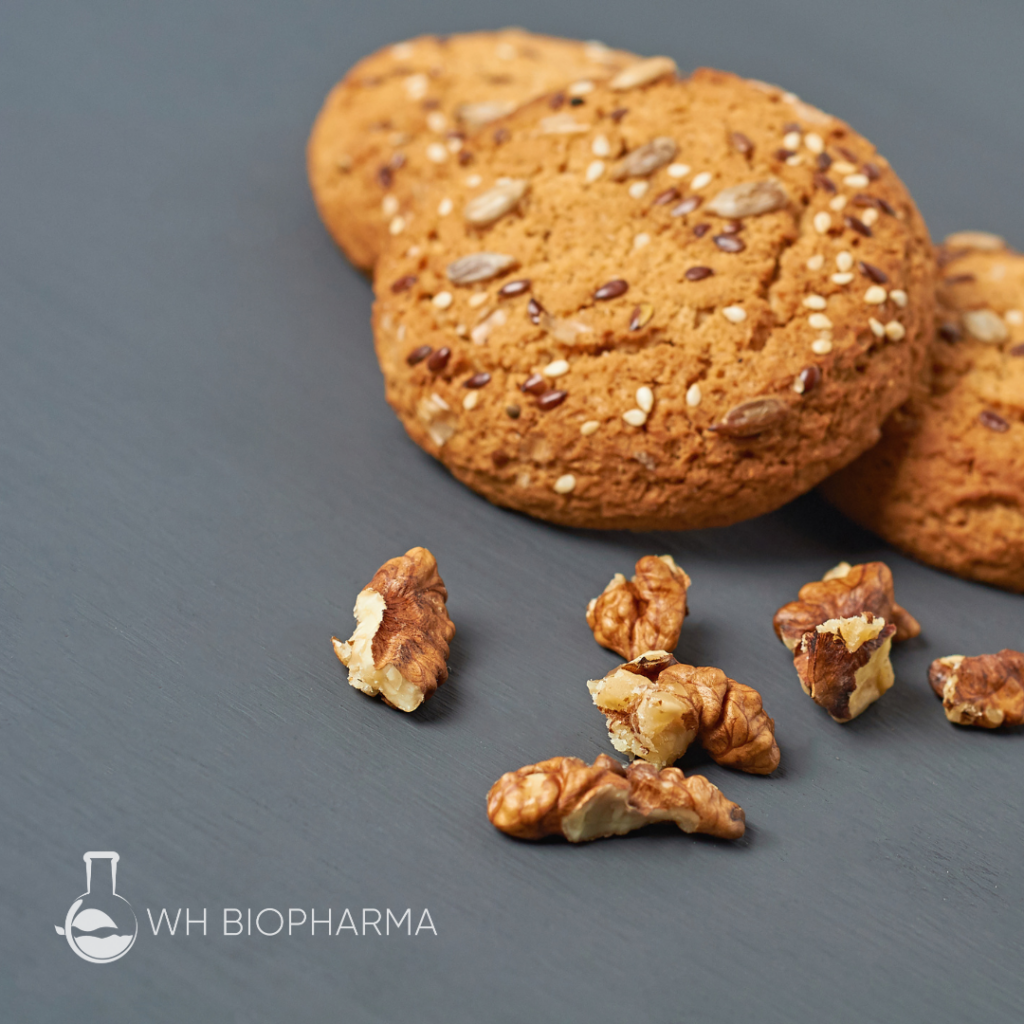In recent years, there has been a growing interest in the relationship between our diet and gut health. Your gut plays a crucial role in your overall well-being, and what you eat can have a significant impact on it. In this article, we’ll delve into the connection between protein cookies and gut health, exploring how these delicious treats can potentially contribute to a healthier digestive system.
Understanding Gut Health
To appreciate the connection between protein cookies and gut health, it’s crucial to begin by understanding what gut health is and why it matters. The gut, often referred to as the gastrointestinal (GI) tract or digestive system, is a complex and essential part of our overall well-being. In this chapter, we’ll explore the fundamentals of gut health:
The Gut Microbiome:
The gut is home to trillions of microorganisms, collectively known as the gut microbiome. These microorganisms include bacteria, viruses, fungi, and other microbes. The gut microbiome plays a vital role in various aspects of our health, from digestion and nutrient absorption to immune function and even mental well-being.
The Importance of a Balanced Gut:
A healthy gut microbiome is characterized by a diverse and balanced community of microbes. When this balance is disrupted, it can lead to a condition called dysbiosis, which is associated with various health issues, including gastrointestinal disorders, autoimmune diseases, and metabolic disorders.
Factors Influencing Gut Health:
Several factors can influence the health of your gut, including:
Diet: The foods you eat can either nourish or harm your gut microbiome. A diet rich in fiber, whole grains, fruits, and vegetables can support a healthy gut, while excessive consumption of processed foods, sugars, and unhealthy fats can disrupt it.
Lifestyle: Habits like smoking, excessive alcohol consumption, lack of exercise, and chronic stress can negatively impact gut health.
Medications: Some medications, such as antibiotics and certain over-the-counter drugs, can disrupt the gut microbiome.
Environment: Environmental factors, such as exposure to pollution and toxins, can also influence gut health.
Gut Health and Overall Well-being:
A balanced gut microbiome is not only essential for digestion but also for maintaining a strong immune system, producing essential vitamins, and even influencing mental health. Research has shown that an imbalanced gut can contribute to conditions like irritable bowel syndrome (IBS), inflammatory bowel disease (IBD), allergies, and even mood disorders like depression and anxiety.
The Gut-Brain Connection:
The gut and the brain are intimately connected through a communication system known as the gut-brain axis. This bidirectional pathway allows signals to flow between the gut and the brain, influencing not only digestion but also emotions and cognition. A healthy gut can contribute to better mental health and vice versa.
Protein as a Gut-Friendly Nutrient

Protein is a fundamental nutrient that plays a crucial role in our overall health, and it can also contribute to maintaining a healthy gut. In this chapter, we’ll explore the significance of protein for gut health and how it relates to protein cookies.
Protein’s Role in the Body:
Protein is often called the body’s building block because it is essential for various bodily functions. It plays a vital role in building and repairing tissues, producing enzymes and hormones, and supporting immune function. Adequate protein intake is crucial for overall well-being.
Protein and Gut Integrity:
The gut lining, consisting of a single layer of cells, acts as a barrier between the contents of the gut and the bloodstream. Protein is essential for maintaining the integrity of this barrier. A well-functioning gut barrier prevents harmful substances from leaking into the bloodstream, which can trigger inflammation and immune responses. Ensuring your diet contains enough protein supports this vital function.
Protein and Beneficial Gut Bacteria:
A balanced gut microbiome is essential for digestive health. Protein-rich foods can provide a source of nitrogen, which is necessary for the growth of beneficial gut bacteria. These bacteria help break down complex carbohydrates and ferment dietary fiber, producing short-chain fatty acids that support the gut lining and reduce inflammation.
Protein Cookies and Gut Health:
Protein cookies, which are typically rich in protein due to ingredients like whey or plant-based protein powder, can contribute to your protein intake. When consumed as part of a balanced diet, these cookies can support gut health by providing the necessary amino acids for gut tissue repair and the growth of beneficial bacteria.
Balancing Protein Intake:
While protein is essential for gut health, it’s crucial to maintain a balanced diet. Excessive protein consumption, particularly from animal sources, can lead to imbalances in the gut microbiome and potential health issues. It’s best to aim for a diverse protein intake from both animal and plant sources.
Fiber and Protein Synergy:
Combining protein-rich ingredients in protein cookies with fiber-rich ones like oats or flaxseed can create a synergistic effect. Fiber promotes regular bowel movements and helps maintain a healthy gut microbiome. The combination of protein and fiber in protein cookies can provide a balanced approach to supporting gut health.
Incorporating protein cookies into your diet can be a delicious way to ensure you’re meeting your protein needs, which, in turn, can support a healthy gut. However, it’s essential to enjoy these treats as part of a well-balanced diet that includes a variety of nutrient-rich foods. In the following chapters, we’ll further explore the potential benefits of protein cookies for gut health and how to maintain a balanced approach to nutrition.
Moderation and Balance
While protein cookies can be a valuable addition to your diet, it’s crucial to enjoy them in moderation and maintain a balanced approach to your nutrition. In this chapter, we’ll explore the importance of moderation and balance when it comes to incorporating protein cookies into your dietary habits.
Portion Control:
Practicing portion control is key to enjoying protein cookies without overindulging. Read the serving size recommendations on the packaging or recipe and stick to them. Consider using small plates or bowls to help control portion sizes.
Mindful Eating:
Mindful eating involves paying full attention to the experience of eating, savoring each bite, and recognizing when you’re satisfied. When enjoying protein cookies, focus on their taste, texture, and aroma. Mindful eating can help you avoid mindless overconsumption.
Balance with Other Nutrient-Rich Foods:
While protein cookies can provide a satisfying treat, they should not replace nutrient-dense foods in your diet. Ensure that the majority of your meals consist of whole grains, lean proteins, fruits, vegetables, and healthy fats to meet your nutritional needs.
Frequency of Consumption:
Consider how often you incorporate protein cookies into your diet. They should be enjoyed as an occasional treat rather than a daily indulgence. Reserve them for moments when you need a quick energy boost or a small indulgence.
Balance with Physical Activity:
Regular physical activity complements your dietary choices and helps maintain a healthy weight. Engage in exercise to offset any extra calories consumed from protein cookies and to support your overall well-being.
Monitor Sugar and Fat Content:
Pay attention to the sugar and fat content of protein cookies. While some fat and sugar are expected in such treats, be cautious of excessive amounts. Opt for cookies with moderate sugar and healthy fat content.
Variety in Protein Sources:
If protein cookies are a regular part of your diet, consider diversifying your protein sources. Incorporate lean meats, fish, dairy, legumes, and other protein-rich foods to ensure a well-rounded intake of essential amino acids.
Nutrient Density:
Evaluate the overall nutrient density of your diet. Choose protein cookies that offer more than just protein, such as those containing fiber, vitamins, and minerals. Look for cookies that use whole food ingredients whenever possible.
Listen to Your Body:
Your body provides cues about hunger and fullness. Listen to these signals. If you find yourself constantly craving protein cookies, it may be a sign that you’re not meeting other nutritional needs or that you’re using them as a coping mechanism for stress.
Seek Professional Guidance:
If you have specific dietary goals, health concerns, or unique dietary restrictions, consider consulting with a registered dietitian or healthcare professional. They can provide personalized guidance and help you strike the right balance in your diet.
Gut Health Beyond Protein Cookies

While protein cookies can be a delicious and convenient way to support gut health, they are just one piece of the puzzle when it comes to maintaining a healthy digestive system. In this chapter, we’ll explore other important aspects of gut health that extend beyond your choice of snacks.
Dietary Diversity:
A diverse diet that includes a wide range of fruits, vegetables, whole grains, lean proteins, and healthy fats is essential for a thriving gut microbiome. Different foods nourish different types of beneficial gut bacteria, so aim for variety in your meals.
Fiber-Rich Foods:
Foods rich in dietary fiber, such as legumes, whole grains, and vegetables, are excellent for gut health. Fiber acts as a prebiotic, providing nourishment for beneficial gut bacteria and promoting regular bowel movements.
Probiotic-Rich Foods:
Incorporating probiotic-rich foods like yogurt, kefir, sauerkraut, kimchi, and kombucha into your diet can introduce beneficial live bacteria directly into your gut, helping to maintain a balanced microbiome.
Hydration:
Staying adequately hydrated is essential for good digestion. Water helps break down food and move it through the digestive tract. Aim to drink plenty of water throughout the day to support optimal gut function.
Stress Management:
Chronic stress can negatively impact gut health by altering gut microbiota composition and increasing inflammation. Implement stress-reduction techniques like mindfulness, meditation, or yoga to support a healthy gut-brain connection.
Regular Physical Activity:
Exercise has been shown to benefit gut health by increasing the diversity of gut bacteria and reducing inflammation. Aim for regular physical activity to support a well-functioning digestive system.
Avoiding Excessive Antibiotic Use:
Antibiotics can disrupt the balance of gut bacteria. Use antibiotics only when prescribed by a healthcare professional, and be sure to complete the prescribed course.
Adequate Sleep:
Quality sleep is essential for overall health, including gut health. Aim for 7-9 hours of restful sleep per night to allow your body to repair and maintain the gut lining.
Limiting Processed Foods and Added Sugars:
Highly processed foods and excessive added sugars can negatively impact gut health by promoting the growth of harmful bacteria. Minimize your intake of these foods for the benefit of your gut.
Medical Conditions and Medications:
If you have a medical condition that affects your digestive system or if you’re taking medications that may impact gut health, consult with a healthcare professional for guidance on managing your gut health effectively.
Gut Health Check-Up:
Regularly assess your gut health by paying attention to digestive symptoms, such as bloating, gas, irregular bowel movements, or discomfort. If you experience persistent issues, consult a healthcare provider or gastroenterologist for evaluation and guidance.
Remember that gut health is an ongoing journey that involves various lifestyle factors and dietary choices. While protein cookies can be a tasty addition to your diet, they are most effective when combined with a holistic approach to maintaining digestive wellness. By paying attention to dietary diversity, fiber intake, hydration, stress management, and other aspects of a healthy lifestyle, you can support your gut health and enjoy the benefits of a well-functioning digestive system.





